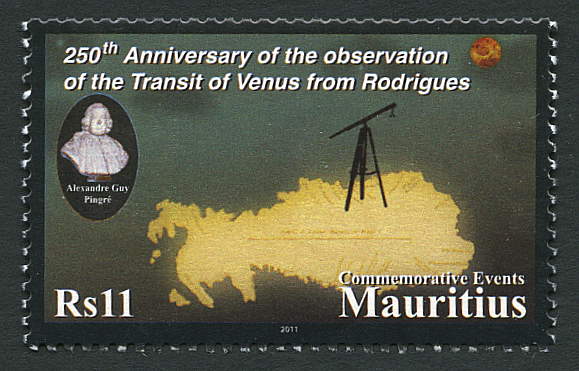
Mauritius 2011
Many countries made strenuous efforts to observe the transit of Venus in 1761,
the first to occur since Halley pointed out that they could be used to measure
the scale of the Solar System. France sent out three expeditions: one to
Siberia, one to Pondicherry in India, and one to the island of Rodrigues, east
of Madagascar in the Indian Ocean. The latter expedition was headed by
Alexandre Guy Pingré (1711–96). His observations were impaired by clouds and high winds, and so his results were of little value.
However, he had more success with the following transit in 1769, which he
observed from Haiti.
Rodrigues is now part of the Republic of Mauritius, a larger island between it
and Madagascar. In 2011, Mauritius issued this stamp commemorating the 250th
anniversary of Pingré’s 1761 expedition. It includes a miniature of this bust of Pingré in the Bibliothèque Sainte-Geneviève, Paris.
The stamp was part of a set of three commemoratives, the others marking the
International Year of Chemistry and the International Year of Forests.
|
|
|||||||||||
|
|
||||||||||
|
|
|||||||||||
|
|
|||||||||||
|
|
|||||||||||
|
|
|||||||||||
|
|
|
|
|
|
| ||||||
